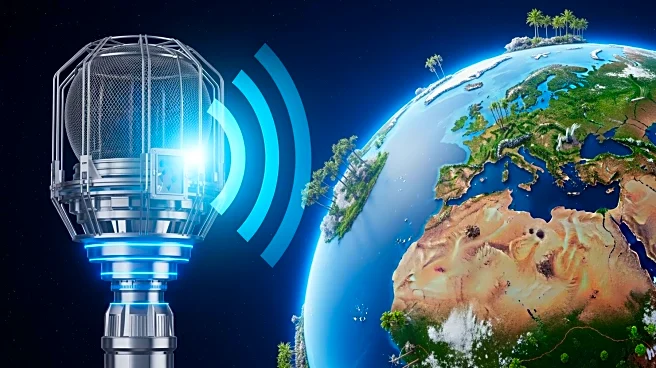What's Happening?
A recent discussion has emerged around the potential for billionaires to unilaterally engage in geoengineering efforts aimed at cooling the planet. This concern arises from the fact that the wealthiest
individuals, who are responsible for a significant portion of global emissions, might attempt to address climate change through technological interventions. Geoengineering, which involves large-scale manipulation of the Earth's climate system, could have unpredictable consequences, such as droughts or damage to the ozone layer. An exclusive survey of climate scientists indicates that over 80% believe an international treaty is necessary to regulate such actions. The current lack of global governance allows individuals or groups to potentially undertake these efforts without oversight, raising concerns about the collective impact on the planet.
Why It's Important?
The potential for billionaires to engage in geoengineering without international oversight poses significant risks to global environmental stability. While the intention might be to mitigate climate change, the lack of regulation could lead to unintended and possibly harmful consequences. The wealthiest individuals have a disproportionate impact on emissions, and their actions in geoengineering could exacerbate existing environmental issues or create new ones. The call for an international treaty highlights the need for collective decision-making in addressing climate change, ensuring that any interventions are carefully considered and globally coordinated. This situation underscores the broader challenge of balancing individual influence with global environmental responsibility.
What's Next?
The push for an international treaty to govern geoengineering efforts is likely to gain momentum as awareness of the potential risks increases. Policymakers and environmental organizations may advocate for global discussions to establish regulations that prevent unilateral actions by individuals or groups. The development of such a treaty would require collaboration among nations, scientists, and stakeholders to create a framework that ensures any geoengineering efforts are safe, effective, and equitable. The outcome of these discussions could set a precedent for how the international community addresses other emerging technologies with global implications.
Beyond the Headlines
The debate over geoengineering also raises ethical questions about who gets to decide how to manage the planet's climate. The involvement of billionaires in such efforts could lead to concerns about equity and justice, as those most affected by climate change are often the least responsible for it. Additionally, the focus on technological solutions might divert attention from reducing emissions and transitioning to sustainable energy sources. This situation highlights the need for a comprehensive approach to climate change that includes both mitigation and adaptation strategies, as well as consideration of the social and ethical dimensions of environmental interventions.










